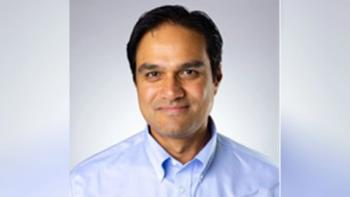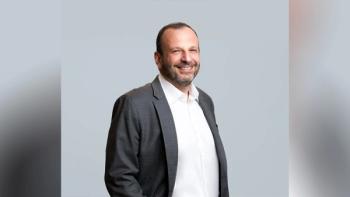
- Pharmaceutical Executive-03-01-2012
- Volume 0
- Issue 0
The Italian's Job
After his predecessor and countryman left the EMA in disgrace, Guido Rasi jumps in as executive director-with great challenges ahead.
Some sly smiles flickered across the lips of the veterans of European pharmaceutical affairs last year, when it started to look as if an Italian was going to be put in charge of the European Medicines Agency. Those with long memories nudged one another knowingly, in complicit acknowledgement that the last Italian in such a distinguished role wound up in prison after being convicted on charges of massive and systematic corruption.
Guido Rasi, who took over as executive director of the EMA in November 2011, has many challenges ahead of him. And one of them is escaping from under the shadow cast by Duilio Poggiolini. As they like to say in serialized romantic fiction, new (or in this case, young!) readers start here. Poggiolini was, like Rasi, head of the Italian medicines agency. Like Rasi, he was a distinguished physician and researcher. Like Rasi, he was a professor of microbiology. And, like Rasi, he was promoted to European stardom, as chairman of the EU's top body for drug authorizations (which, back in 1991, before the EMA existed, was the Committee for Proprietary Medicinal Products—now reborn as the CHMP within the EMA).
Unlike Rasi, Poggiolini was given a heavy jail sentence in 2000 for abusing his position and taking bribes in return for favorable decisions on pricing and authorization. Poggiolini's misdeeds, uncovered during a mani puliti—clean hands—investigation into an influential Masonic lodge, were on an epic scale. He had amassed cash, jewelry, gold, and works of art estimated at more than $150 million, stashed not just in Swiss bank accounts but even hidden in the sofas in his house in Naples—including gold rubles from the reign of Czar Nicolas II and South African Krugerrands. It took investigators 12 hours just to catalog the spoils stowed around the house. As if that were not enough of a record, Poggiolini was subsequently charged with delinquent management of Italy's blood transfusion services, and responsibility for thousands of cases of hepatitis C and HIV from contaminated blood.
Unlike Poggiolini, Rasi already has a profile for mani puliti. Rasi was appointed head of the Italian health agency in 2008 as as new broom after his predecessor, Nello Martini, was unseated in the course of an investigation into trafficking of influence. Rasi had been an advisor to the Italian agency for four years by then, but he had a reputation as an honest dealer—vitally important as Martini was facing trial on charges related to agency failures that allegedly put patient safety at risk. Under its new command, the agency recovered some of the credibility it had lost over yet another incident calling into question the probity of Italian officials. Rasi oversaw a restructuring of the agency designed to make it more efficient and improve drug registration times.
Rasi Takes the Reins
Only three years later, Rasi finds himself in a similar role at European level. The reputation of the once-glistening European Medicines Agency had become heavily tarnished during 2011 by accusations of conflicts of interest and mismanagement. Thomas Lonngren, its executive director, provoked sharp criticism when he quit his job to walk straight into consultancy work in the pharmaceutical industry (see Pharm Exec, December 2010). At the same time, charges were flying wildly of agency incompetence and even complicity in leaving unchallenged, for years, Servier's Mediator, by then linked to hundreds of deaths in France. And the European Parliament refused to sign off on the agency's accounts because of concerns over insufficient financial and personnel controls. It was onto this unpromising stage that Rasi stepped last November, after the agency had drifted for nearly a year without an executive director. Small wonder that malicious chuckles ran round Brussels along the lines of "and after all that, they could only get an Italian!"
Rasi's declaration of interests is unequivocal. He says he has no financial interest in any pharmaceutical company, owns no product patents, and that he has no personal gain from any grant or other funding from a pharmaceutical company to any organisation he is employed by. So mani as puliti could be. But Poggiolini is only one of the shadows over the EMA. Now there are other battles of a more technical nature for the London-based agency and its new boss.
Rasi has shown some lithe thinking about squaring some of the circles he is confronted with, and doing so with what are widely recognized as insufficient resources for a growing workload and ever-more-sensitive decision-making. He has publicly admitted there are problems, and has publicly promised "not to hide from them."
Issues to Tackle
One dilemma arises from implementation of new EU pharmacovigilance rules due to come into effect in July, for which large amounts of drug information from companies is supposed to be entered in advance into the agency's EudraVigilance safety database. Rasi has spoken of this as his "biggest headache," because of the administrative implications in handling complex information on more than half a million products. Pragmatically, the EMA reached a compromise agreement last month with companies to smooth the process, after industry warnings that the requirements were unworkable. Rasi himself will lead from the front in tackling the problem, heading a task force set up specifically to oversee the implementation of the legislation.
On the thorny issue of biosimilars, Rasi has shown similar agility. Europe's generic medicines industry is now hopeful of his backing for changes that could cut the cost of developing biosimilars by harmonizing European and U.S. regulation and avoiding the need for duplicative approval procedures. He is planning to create a joint U.S.-EU biosimilar conference to simplify the work while maintaining standards. He has also promised guidelines on the harmonization of regulatory procedures for biomolecules, to increase the use of biosimilars.
He has also indicated ambitions for the EMA to accept a broader responsibility to patients and industry, breaking a taboo that limits its role to merely showing a red or green light to marketing authorization applications. "I see the next phase of the agency's development to be focused on rethinking how medicines contribute more broadly to public health, how access to medicines can be assured in a world of increasing scarcity, and a growing focus on safety," he said on his first day in office. His vision is of an agency that can contribute to ensuring access to medicines by taking some account of what happens to products—on pricing and reimbursement—after authorization. He has spoken of making the agency's work so credible and scientifically authoritative that its thinking is not challenged.
He has also indicated concerns over combating falsified medicines, the challenges of new approaches to medicines development, the lack of harmonization of clinical trials rules across member states, and the need to adapt to the new demands of assessing personalized medicines on the basis of pharmacogenetic criteria. He is alert to what he sees as the "disparity" between the risk/benefit analysis the EMA does and the emerging disciplines of health technology assessment, and he is conscious of the still-to-be-faced challenges of regulating medicines derived from nanotechnology or using new routes and methods of administration. His battles will be many—but at least he comes to it with a spotless record and evident energy.
So maybe Rasi should not be compared so much with Poggiolini as with some of his compatriots currently making the running in Europe—such as Mario Draghi, who is competently piloting the European Central Bank through the turbulent waters of the euro crisis, or Mario Monti, the former European Commissioner who is now trying to salvage Italy from the near-disaster of Berlusconi's misrule. And if Rasi ever gets around to writing his book, it will suffer a less ignominious fate than Poggiolini's 1989 "Practical Guide for Applications for Marketing Authorizations on Medicinal Specialities in the EEC," which has been long since—and unsurprisingly—pulped.
Reflector is Pharm Exec's anonymous columnist, a commentator so close to the action in Europe that his identity must remain secret.
Articles in this issue
almost 14 years ago
Novartis: LEADing in Emerging Marketsabout 14 years ago
Pharmaceutical Executive Digital Edition - March 2012about 14 years ago
How Can We Fix the FDA?about 14 years ago
Off the Hook? Pharm Exec's Annual Press Auditabout 14 years ago
The Maestrosabout 14 years ago
The (Life) Science of Digital Connectionsabout 14 years ago
Judging a Pill by its Coverabout 14 years ago
When Talk is Not So CheapNewsletter
Lead with insight with the Pharmaceutical Executive newsletter, featuring strategic analysis, leadership trends, and market intelligence for biopharma decision-makers.




